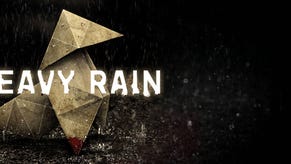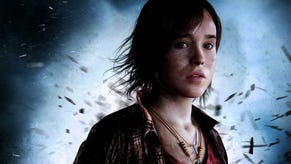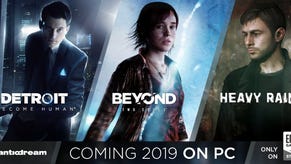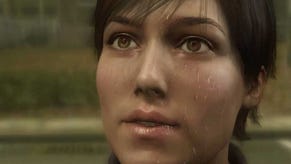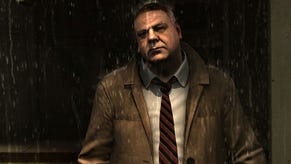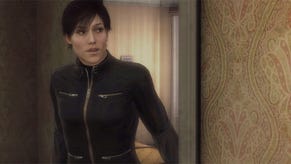A Look Back on Heavy Rain
Shortly after the release of Beyond: Two Souls, Eurogamer's John Teti looks back on David Cage's miserablist marvel from 2010.
This article first appeared on USgamer, a partner publication of VG247. Some content, such as this article, has been migrated to VG247 for posterity after USgamer's closure - but it has not been edited or further vetted by the VG247 team.
Heavy Rain was going to be huge. Hyped by years of teaser trailers and credulous preview articles, the game was pitched as a revolutionary vision before it was even released.
Given that build-up, it took a brass pair for David Cage to begin his game this way: A dude wakes up, brushes his teeth, maybe takes a couple slugs of orange juice, and waits for his kids to come home.
Talk about adjusting players' expectations. The prosaic scenes of suburban family life are a pointed opening statement of Heavy Rain's aims. It isn't about revolutionizing the form or maximising technical capabilities (Sony's delusional "Only possible on PlayStation!" bluster notwithstanding). It's about asking players to connect with ordinary characters in a lasting way.
Trying to tell an interesting story on a relatable scale isn't exactly a novel ambition, but novelty is overrated. As I consider what I want to remember from gaming in 2010, I'm more compelled by the down-to-earth earnestness of Heavy Rain than the whole stinking pile of Move/Kinect/3D tech fetishism.
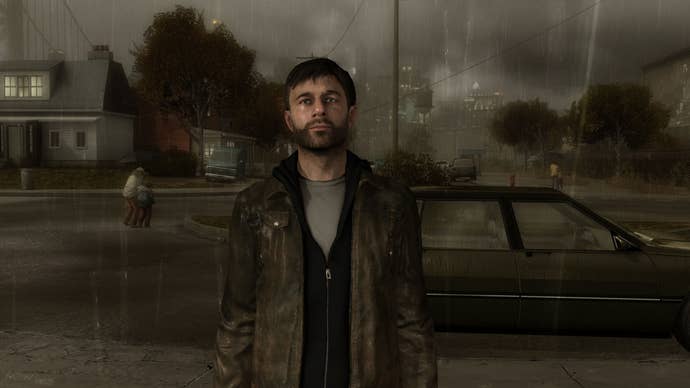
Before things get too serious, let's all admit this much: The game can be pretty silly. As I wiggled the PS3 controller back and forth to brush Ethan Mars' teeth, it's not like I stroked my chin and mused, "Ah, what a stirring comment on the mundanity of human existence." No, I thought, "I bet I look as stupid as I feel right now."
Likewise, the infamous mall scene where Ethan loses track of his son Jason, world's stupidest kid, is no gem of modern drama. (Totally worth it, though, because at least we got a funny parody Flash game -- now seemingly offline -- and YouTube music video out of the deal.)
Heavy Rain makes for an easy punchline because it's so devoid of guile. It asks players to apply photojournalist Madison Paige's mascara by lovingly, oh-so-gently maneuvering the left analog, and it does so without irony. The game honestly believes this is a worthwhile use of your time.
And in the end, it is, which is Cage's triumph. All those little beats of decision and forced input come together as pencil strokes in the game's sketch of four remarkably full-bodied characters.
There is precious insight to be gained in seemingly banal moments, like the one at the drugstore where retired cop Scott Shelby picks up an asthma inhaler from the back shelf. Playing as Shelby, you use some basic controller moves to make him grab the inhaler, but it's not like I felt that much more connected to the man's soul because I pushed a few buttons on the controller and he moved his arm. Superficial kineticism is not the point of these interactions.
The real artistry is that these bits of nominal input compel players to pause and observe the act at hand. Cage uses controller prompts like a cinematographer uses close-ups, to highlight details that the audience might otherwise pass over.
With Shelby in the drugstore, the controller-aided close-up made me think about the inhaler. Asthma is usually diagnosed in children, and Shelby's in middle age, so this is probably a burden he's carried since he was a kid. Let your gaze drift to his worn face during this scene, and it's evident that asthma probably isn't the only thing that has weighed on him for a long time. He's a man accustomed to carrying a heavy load with a visage of grim indifference.
In short, the inhaler exchange adds a new layer to Shelby's obsession with solving the Origami Killer case -- it's a detail that pays off for those who treat it as more than a standard "quick-time" event. (And given how mundane the button-pressing is on its own merits, the natural instinct is to look for something more.)
Even that mall scene has a great moment tucked in there amid the "Jason!"-yelping awkwardness. When Jason Mars wanders off to his eventual doom, father Ethan's first move isn't to run after his star-crossed spawn, or to yell for help. Instead Ethan frantically pats around for his wallet so he can pay a clown for the balloon they just bought - then he tries to find his child.
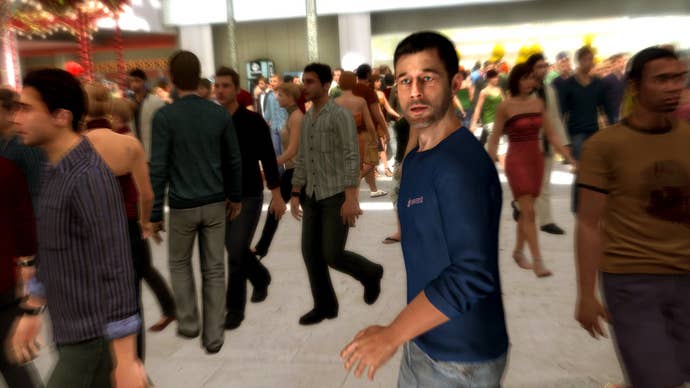
The wallet-hunting takes a while, and as I pushed the analog stick left, right, and up to unearth Ethan's billfold, I thought, why isn't he chasing after Jason already?
That's the reaction Cage wants us to have, because Ethan would surely ask himself the same question in the ensuing years after Jason's death: Why did I care about a goddamn mall clown? Why did I waste those all-important seconds settling up for a $2 balloon?
It's a banal act made potent by the ensuing tragedy and Ethan's subsequent self-torture. The reality is that Ethan is human; he panicked. This answer is purposely unsatisfying for the character and player. Cage brings us into the same emotional plane.
That's how Heavy Rain's low-stakes decisions inform and provide relief for the more intense choices that crop up at major junctures in the story. If every scene were as charged as Ethan mutilating himself to please a kidnapper, or FBI profiler Norman Jayden fighting off narcotics withdrawal during a tense questioning, the game would come off as pulp.
More to the point, Heavy Rain's quiet stretches reflect a belief that characters are formed as much by their tiny moves as they are by bold strokes. That's an honest, wise assessment of human nature.
Is Heavy Rain going to change the face of gaming? Probably not. Few will try to replicate its nuanced touch, and fewer will succeed. Cage's rich, personal masterpiece did prove, though, that console games are more versatile storytellers than the industry tends to give them credit for. If not a revolution, it was at least a surprise, and that's a rare enough feat in itself.

